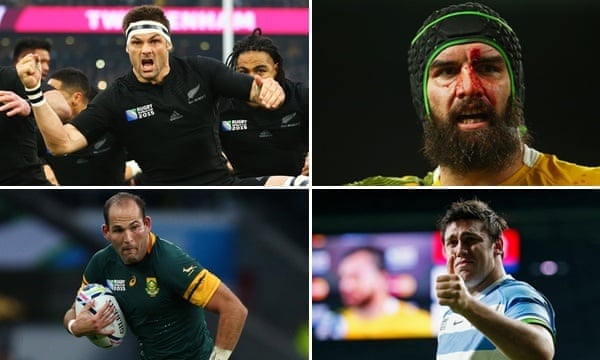
1) New Zealand are no longer knockout chokers
The All Blacks are now knockout in the knockouts, quivering no longer when it comes to do or die. In past tournaments, five points and a man down at the interval, would have been the start of an unravelling, but what happened against France in the 2007 quarter-final has left a mark as indelible as the silver fern on the black jersey. South Africa tested them to the limit, forcing penalties at the breakdown, but the maturity New Zealand displayed in the second-half, not overplaying, not looking for the perfect try, not getting excited or ahead of themselves, using every drop of their experience. They produced winning rugby in the second half, piloted by Dan Carter who afterwards admitted that some of his performances earlier in the tournament, such as against Georgia, were muted because he knew this was his final chance of appearing in a World Cup final after three abortive attempts. His 47th-minute drop goal showed how what happened in Cardiff in 2007 had been absorbed, dropping a smart goal while Jerome Kaino was in the sin-bin, a player, like the team, driving his destiny.
2) Unheralded Fardy a blood-soaked hero for Wallabies
We teed up Saturday’s semi-final as a match-up between the world’s two best back rows. And now we’ll do the same for the final. New Zealand’s had the measure of South Africa’s, just about, but we had momentarily forgotten that Australia have a pretty handy one too. David Pocock returned for this semi and was a menace at the breakdown, complementing the busy forays of Michael Hooper. And Scott Fardy was a blood-soaked, all-action hero, turning his hand to almost every skill of this multi-faceted sport you can think of. We even had a 30-metre cut-out pass (albeit to no one in particular). Lineouts, carries, support play, tackles, turn-overs, blood – it was quite the performance from the least heralded of yet another world-class back row at this tournament.
3) Argentina undone by early errors, but officials didn’t help
Too loose in the first 10 minutes will be the verdict. The Pumas tried to recreate the pyrotechnics with which they burnt Ireland early on the week before. This time it burnt them instead, and, what’s more, required them to continue playing with fire for the rest of the game. At one point their chances looked fair, but they needed everything to fall for them if they were to have any chance – and it didn’t. The yellow card shown to the enormous Matías Alemanno was the latest blight on a tournament whose greatest failing – maybe its only one – has been the officiating, usually from the guys in the TMO booth. We have come to live in dread of those interventions in the ear of the ref. Every game seems to have had them, and teams can only pray the random generator doesn’t come out against them. Having opened the can of worms regarding Tomás Lavanini’s no-arms tackle (low round the ankles – is that really dangerous?), this particular TMO did try to talk Wayne Barnes out of issuing a yellow, but the referee was hell-bent on going through with the latest injustice. While Lavanini was off, Australia scored their third. Barnes also declined to award a fairly clear penalty at a scrum just before the break. And there are question marks over the final pass for the fourth Australian try. No, it’s fair to say something less than everything went their way.
4) South Africa too individualistic to prevail, this time
The Springboks finished the tournament as they started it, with a two-point defeat, but where there was despair and anger after their loss to Japan, taking the holders and the team ranked No1 in the world for the last decade to within a retaken conversion of extra-time meant they exited with honour. The conditions were in their favour and their initial tactic of testing Nehe Milner-Skudder with high kicks, blitzing the breakdown and attacking the New Zealand scrum earned them the lead and, against any other side, probable victory. They lacked experience in certain positions, but by 2019, Handre Pollard, Damian de Allende and Jesse Kriel will be, under their current rate of progress, a midfield trio to take South Africa to the step beyond by adding a creative edge. They tended to play as individuals on Saturday, but that will change as their partnership develops. South Africa scored only one try in the quarter-final, memorable though Fourie du Preez’s against Wales was, and the difference with the All Blacks in the end was the two tries the holders scored and the manner in which they were created, heads and hands breaking hearts.
No comments:
Post a Comment